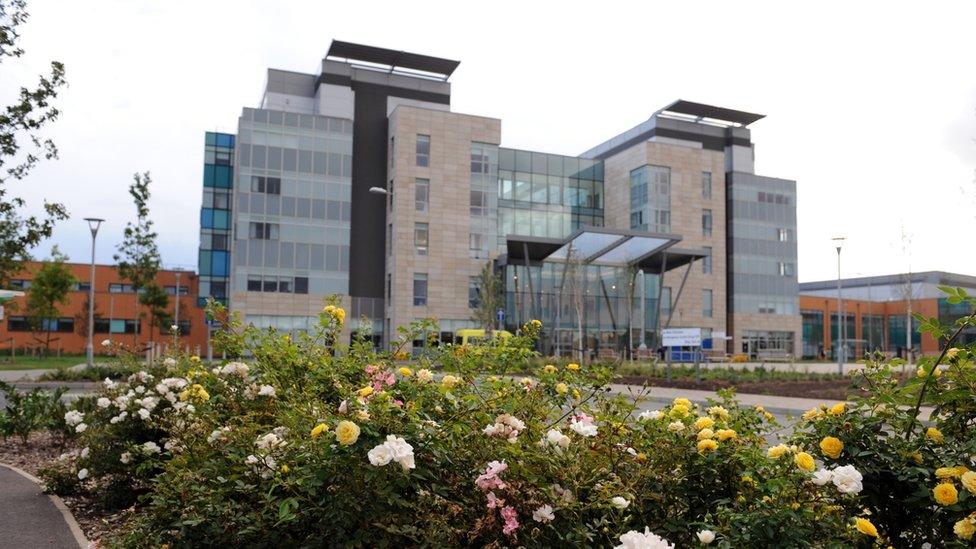Covid-19: Vaccinating a city where uptake is low
- Published
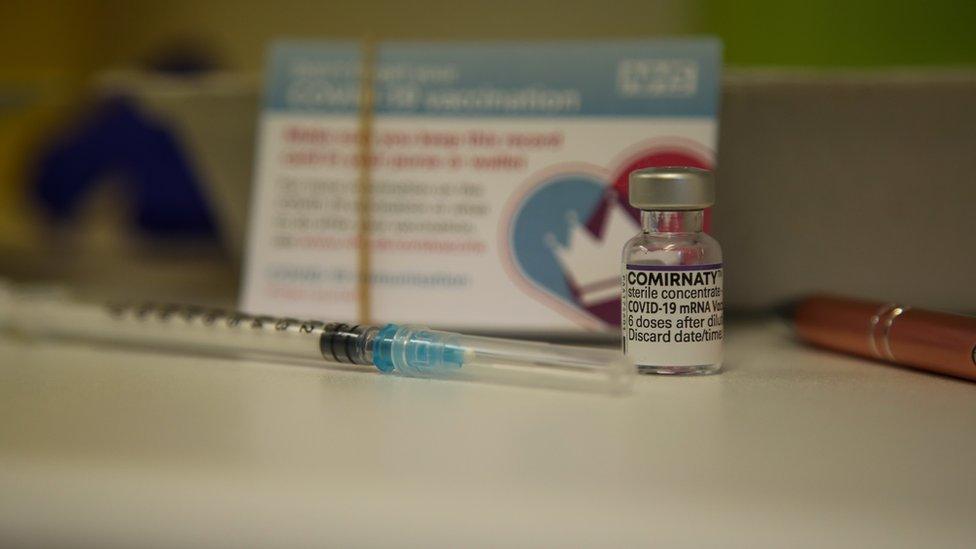
A vial containing the Pfizer/BioNTech Covid-19 booster vaccine
A year on from the world's first Pfizer Covid-19 vaccination, about one in 10 eligible people in the UK - or 6.4 million people - remain unvaccinated. In Peterborough, 30% of people are yet to receive their first jab. What is being done to change that statistic?
In the 12 months since 90-year-old Margaret Keenan rolled up her sleeve and made history, more than 51 million first doses of vaccine have been squeezed into people's upper arms in the UK.
There have also been 46 million second doses - and 20 million boosters since September.
But there are still people in all age groups who have not received any, including nearly one in four young adults.
In Peterborough, a failure to reach out to minority communities is cited as one of the reasons uptake is relatively low, with 30% of its population of about 200,000, external yet to receive their first dose.
'It's been a long, long journey'
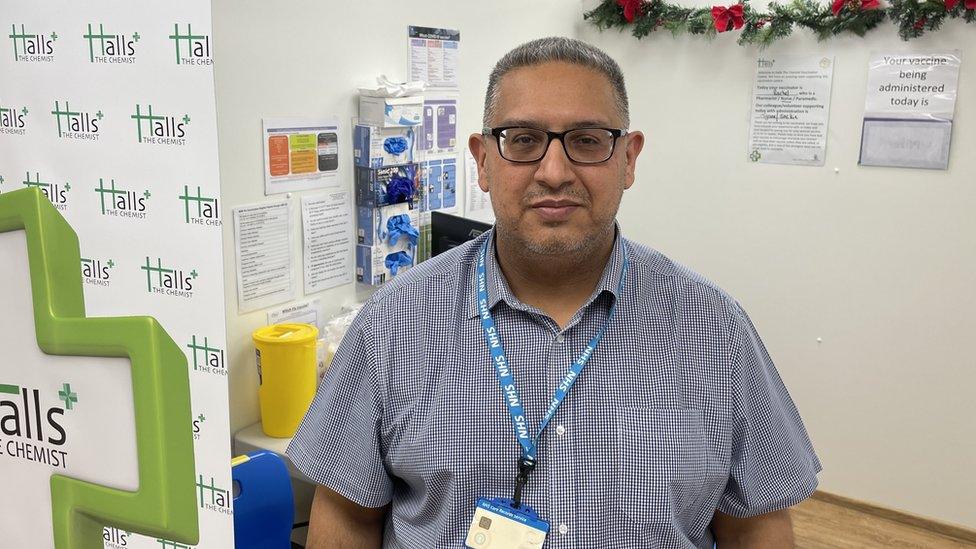
Pharmacist Shabbir Damani, who runs a Covid vaccination centre in Peterborough
Pharmacist Shabbir Damani, 46, runs six branches of Halls the Chemist across Cambridgeshire and Norfolk.
His pharmacy in Orton Wistow, Peterborough, and adjoining Chinese restaurant, were transformed at the beginning of the year to accommodate a Covid vaccination centre.
The volunteers he calls his "team of angels" has administered almost 50,000 vaccinations since 4 February.
"It's been a long, long journey," he says. "Every clinic, we're still getting patients arriving to get their first vaccine - and we're really grateful as it gives them a level of protection," he says.
"Some people have been hesitant for a number of different reasons. Some believed this would go away, maybe they had other health challenges, some have cocooned themselves at home. No-one should feel shy to come forward.
"I don't think as a society we should force anybody.
"It's a critical intervention that we can do, and with increased variants arriving and the challenges that are coming, we all have to do our bit to help protect ourselves, our families, our friends and our NHS - we all have a joint responsibility."
Mr Damani says the prospect of spending time with family over Christmas prompted many to finally get their first jab.
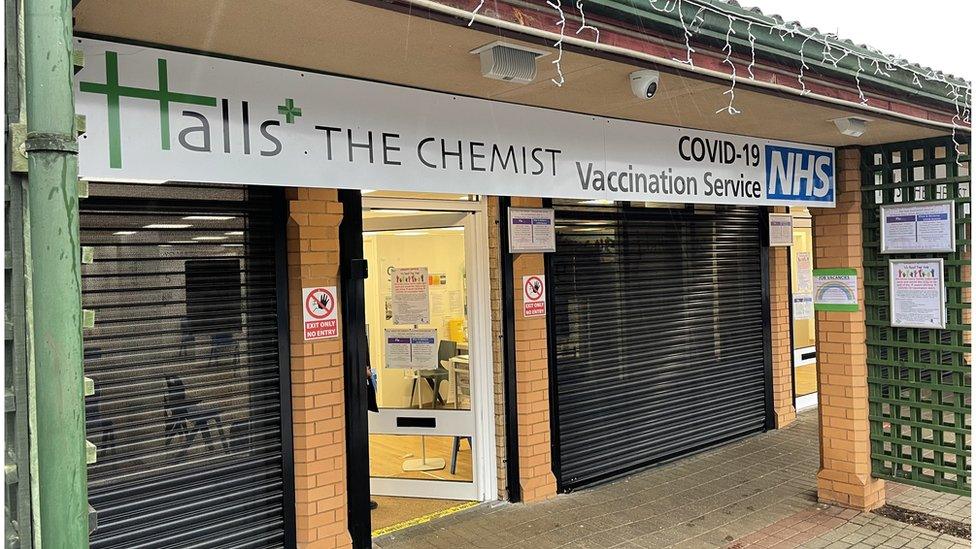
Volunteers at the pharmacy chain have administered almost 50,000 vaccines since February
A spokeswoman for the Cambridgeshire and Peterborough Clinical Commissioning Group (CCG) said: "We are incredibly grateful to the team at Halls the Chemist for delivering thousands of Covid-19 vaccinations to local people in Peterborough.
"Our area is working hard to increase capacity following the recent government announcements and will do all we can to help support the delivery of vaccinations to local people."

'Community-based approach'
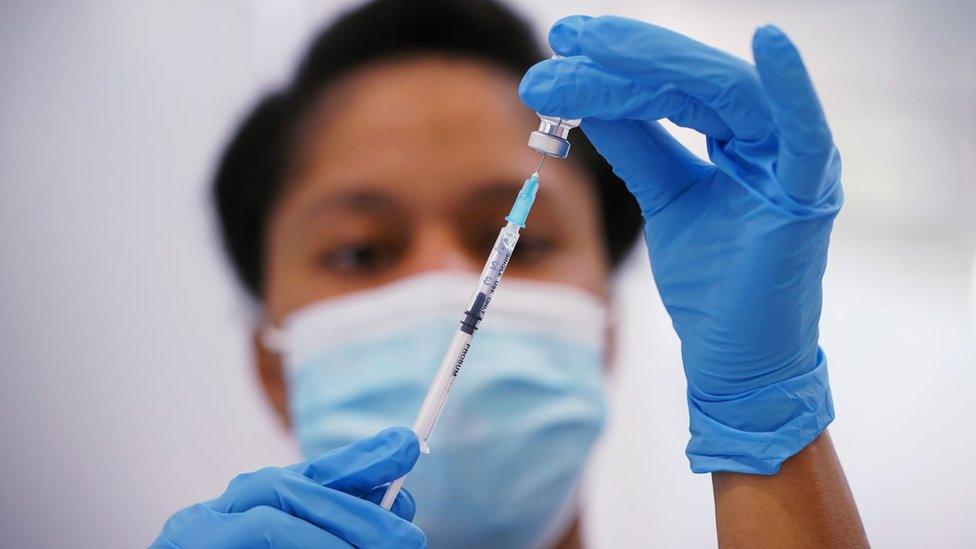
Booster jobs are being rolled out to over 40s and then to all adults by the end of January
Prof Gurch Randhawa, who leads the Institute of Health Research at the University of Bedfordshire, believes community engagement is key to getting vaccinations up in areas where it is still lagging behind.
"All the research shows that vaccine uptake is influenced by a lack of trust in the system and lack of engagement," he says.
"We know people from lower socio-economic groups and also non-white communities have lower uptake of the vaccine.
"We learnt over the summer that we can actually solve this. When we reached out to the communities via trusted messengers - either mosques or gurdwaras or temples or churches - we actually found vaccine uptake went really high.
"We've got to take a community-based approach. We've got to re-energise those community efforts."

'There is a lot of fear'
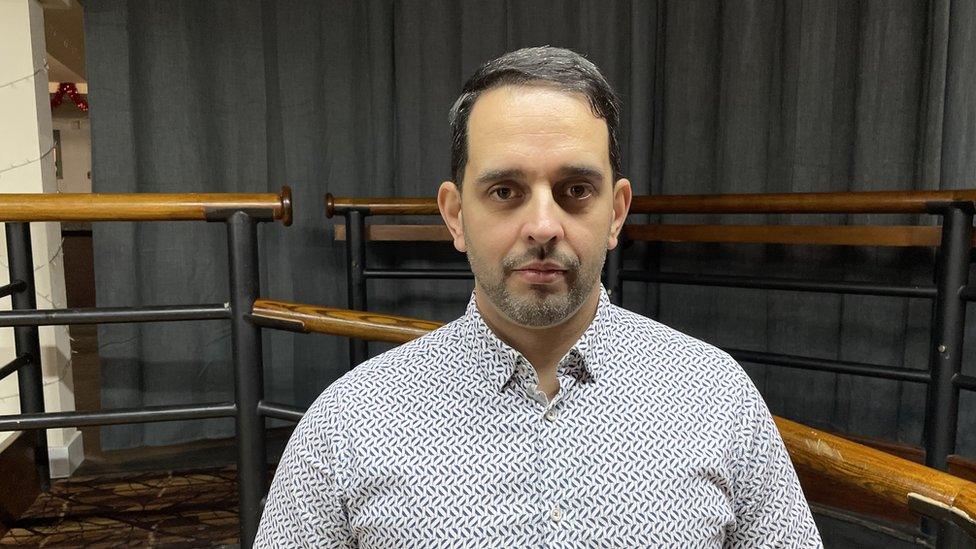
Petr Torak says more needs to be done to reach out to marginalised communities like the Roma
Petr Torak is the chief executive of the Peterborough charity Compas, which supports and mentors migrant communities in the city.
"From my experience, a large proportion of unvaccinated people come from Central and eastern Europe and also from within the Roma-gypsy community," he says.
"It is quite often because of the fear, lack of understanding, and lack of language that they do not know what to expect from a vaccination, they do not have the information in their language.
"There are community organisations - there are community leaders - that can help. Communities such as the Roma have experienced centuries of discrimination, marginalisation and hatred, the community is less likely to have trust in the services.
"Most rely on social media, where there are conspiracy theories and misinformation shared by people and it creates fear and anxiety.
"They believe they will be unable to have children, or will have serious side effects.
"So there should be more done in terms of reaching out to those communities. It is not that they are hard to reach - but the system has failed to reach them yet."
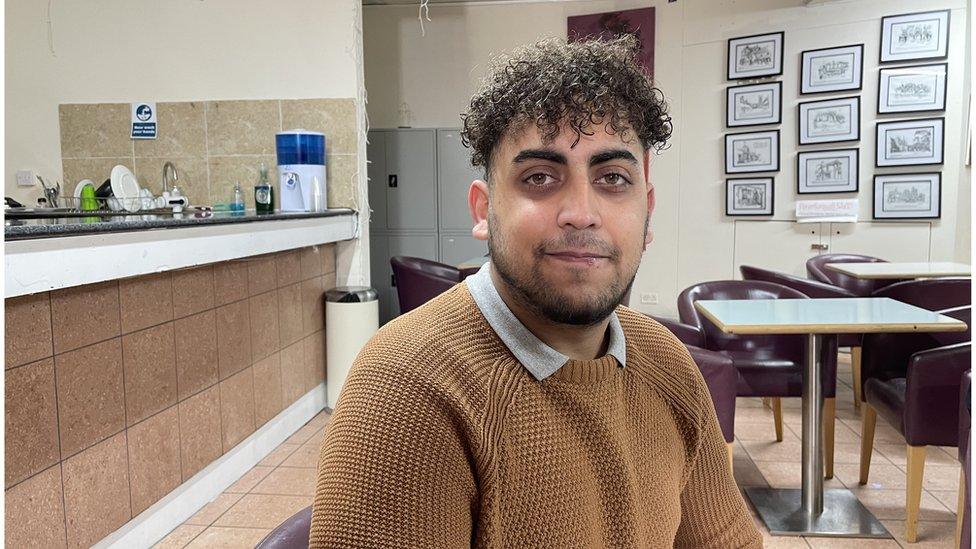
Marko Strbak was originally held back by negative social media
Marko Strbak, 27, received his first dose two weeks ago.
He says conspiracy theories and "negative information" about the vaccine held him back.
"I needed to look after my health and other people around me," he says. "It was the right time, I needed it, to keep myself healthy and to protect other people as well."
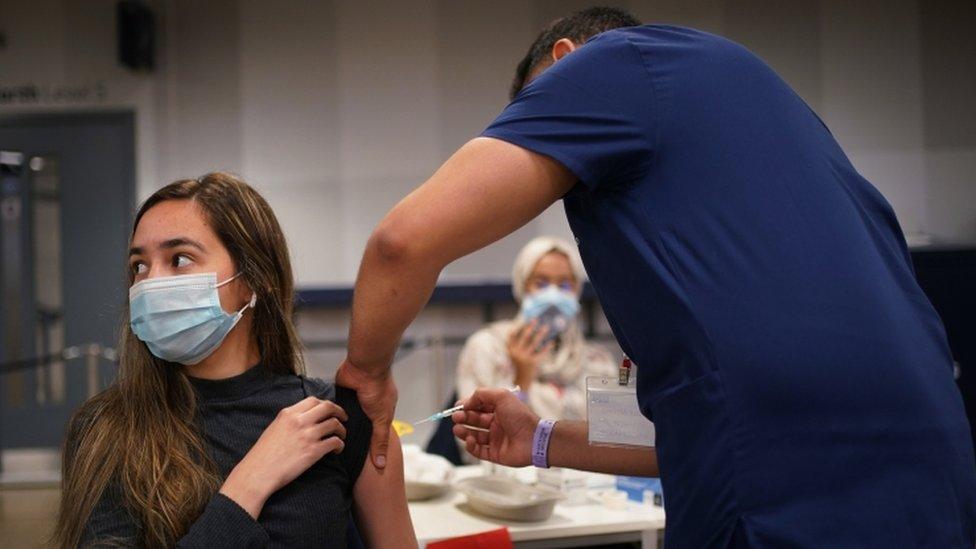
About 30% of people in Peterborough have not had a first dose of a Covid vaccine
A spokesman for the Department of Health and Social Care said the vaccination programme had been "a huge success" with the UK having one of the highest uptake rates in the world.
"We're working with the NHS to provide advice and information at every opportunity on how to get a vaccine and its benefits," he said.
"This includes partnerships with clinicians, vaccine experts, social media platforms, local authorities, faith groups and business.
"The Health and Social Care Secretary has also accepted advice from the JCVI to extend the offer of a booster jab to all adults by the end of January 2022, which will help protect more people and further strengthen our wall of defence."

Find BBC News: East of England on Facebook, external, Instagram, external and Twitter, external. If you have a story suggestion email eastofenglandnews@bbc.co.uk, external
- Published7 December 2021
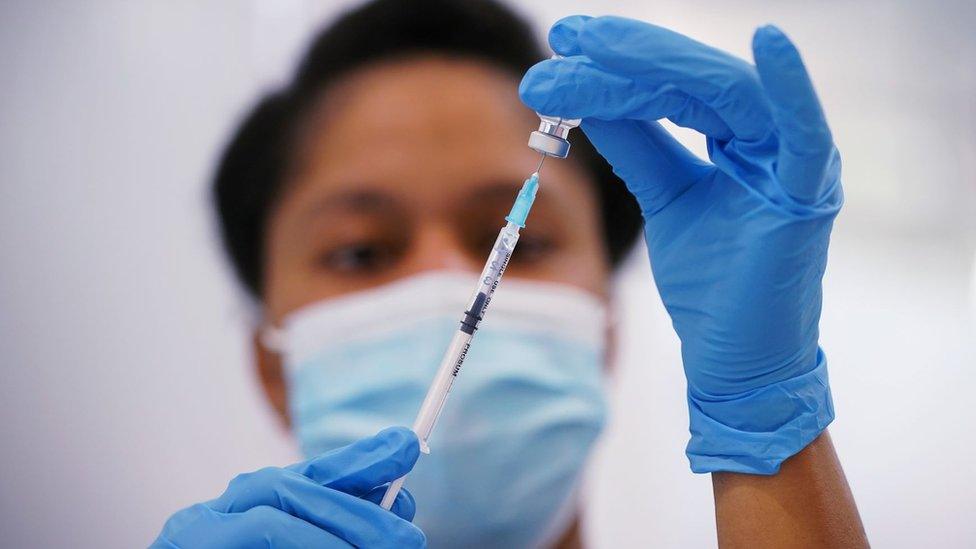
- Published5 December 2021
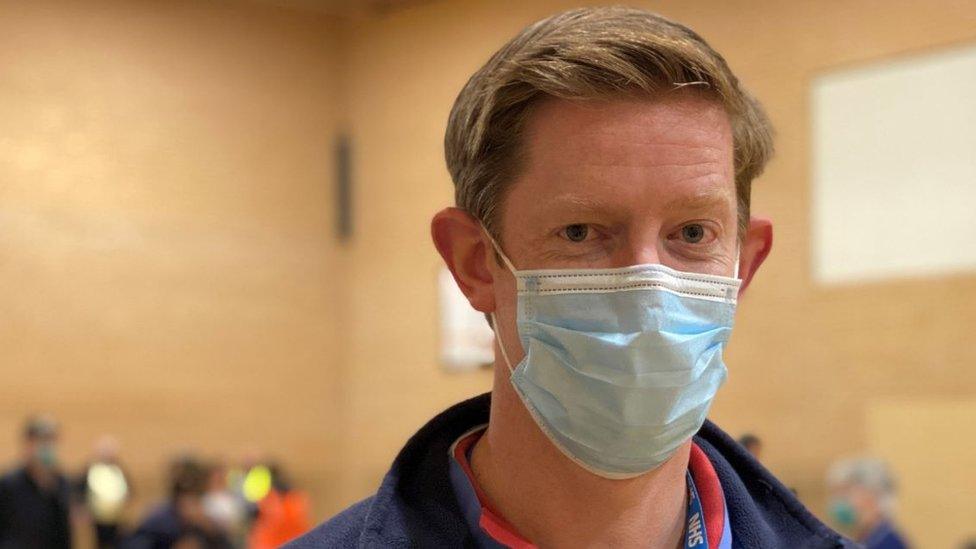
- Published4 December 2021
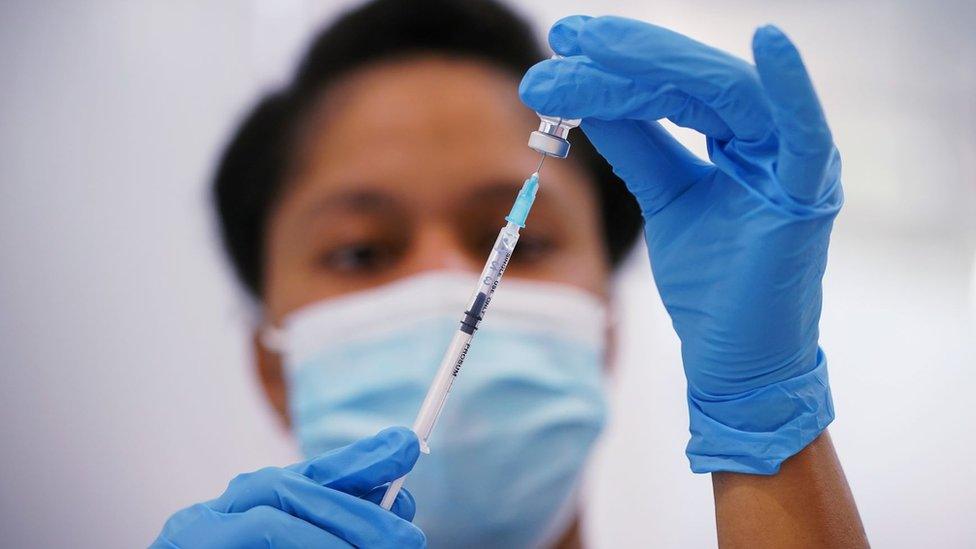
- Published1 December 2021

- Published23 November 2021
